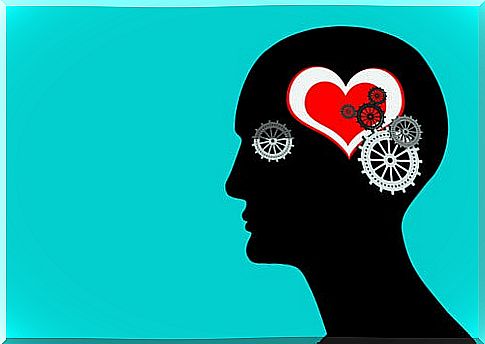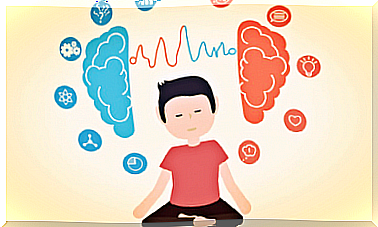The Force Of Your Emotions Drives Your Life

The force of your emotions often precedes the thought itself. We cannot forget that people are, after all, emotional entities who learned to think just over 100,000 years ago. Emotions, meanwhile, were always that primary root in our brain; a set of essential processes that guaranteed our survival.
Taking on this idea is not always easy. It is not in the first place because most of us like to think that we have full control over everything we do and decide. However, we overlook that much of our behavior is governed by a powerful but veiled emotional universe that we are not always aware of.
Let’s reflect on that for a moment. When we get up in the morning, we do it with a certain emotional state; sometimes more motivated, others with a slightly darker will. The way we feel completely permeates our day.
The first impulse that mediates each step we take, large or small, is filtered by emotion. It is true that, in many cases, afterwards we try to reason each decision made, but in the beginning, it is they who give us the first push and in turn leave an imprint. Likewise, we cannot deny that many of our purchases are mediated by emotions, as are our social and emotional relationships.
Its transcendence, its impregnation and its great complexity, shapes everything we do and the way in which we react with the environment. It is an undeniable fact.

The strength of your emotions mediates everything you do
Something that is repeated frequently in any self-help or emotional management book is that of: “You have to learn to control your emotions. ” In these manuals (as in popular parlance) there is no shortage of terms such as “manage,” “master,” and “manage.” Many might think when reading these words that an emotion is almost like a car or a checking account that you have to know how to manage.
Well, well, nobody will be able to control or manage anything if they do not basically understand what is at hand or, rather, in the neural depths of their brain. Thus, the neurologist Antonio Damasio brings us closer to this universe. In books like In Search of Spinoza or The Strange Order of Things, he offers us very interesting data.
Let’s see it next.
Your emotions want you to survive and be okay
An emotion is basically a chemical and neural response. This reaction is generated by our brain when it processes a stimulus that requires some type of behavior on our part (I see a snake, I know it can be a danger. So, it is normal for me to move away without “even thinking about it”). Likewise, the internal chemical response generates a large number of changes in our body with a single purpose; help us execute a behavioral response.
The force of your emotions is intended to help you react to what is happening around you. It does it so that you survive and reach homeostasis again, that is, balance and well-being. Now, on average, there is a basic and essential problem in much of us: we do not know what our emotions want to tell us.
Fear, sadness, anger, frustration … Many of those emotional states that we label as “negative” also serve a function : to alert us that something is wrong and that we must react. However, it is common to let them stay there, in the depths of our being, altering homeostasis and generating discomfort.

Emotion, feeling and thought
Emotion always precedes feeling and it is also, on many occasions, the one who precedes thought itself. Thus, in books such as En Busca de Spinoza de Damasio or How the brain works by Francisco Mora, they reveal the importance of understanding the difference between emotions and feelings. The emotions would be of the body and the feelings of the mind.
The first thing we experience is emotion. Before each thing that happens to us, before each situation, the first thing we experience is an emotion. Now, the mental experience that we have in front of all those changes that take place in our organism gives shape to the feelings. And feelings, in turn, are those that give impulse to the mind, those that offer us motivation or, on the contrary, block us.
It is precisely during the last step of our evolution, when we learn to have a greater understanding and control over our emotions. With the development of the frontal and prefrontal lobes, we were able to become aware of feelings and emotions, to shape behaviors that are more refined, creative, rational and full of power.
Because we cannot forget that emotion and thought can never be separated, together they give us greater impulse. An emotion controlled and put in our favor through thought often shapes the most innovative and positive behaviors.
Your emotions should be your allies, not your enemies
The strength of your emotions is undeniable and often, it is they that mediate much of your behavior. Likewise, our feelings impregnate us with that illusion that seems to revitalize them when it sticks to every thought we handle. Therefore, it is important not only that we know what an emotion is; but also knowing how to handle them, channel them and put them in our favor.
Achieving it is not an easy task. It takes time, it requires that self-awareness by which to be connected to what happens inside of us, responding consistently. As Daniel Goleman points out, we have two minds, one that thinks and the other that feels. Happiness, true well-being, is found in getting them to act in the same direction. Let’s think about it.









